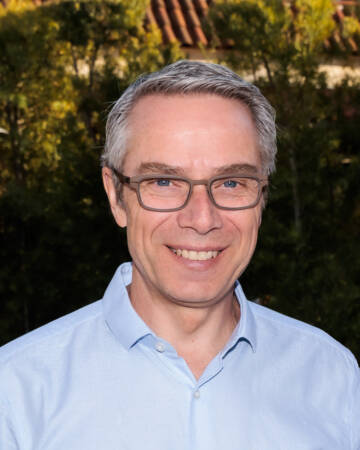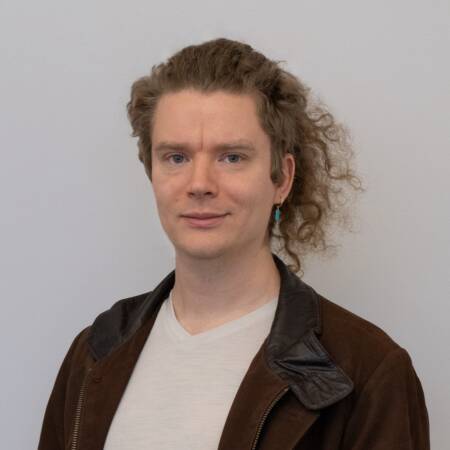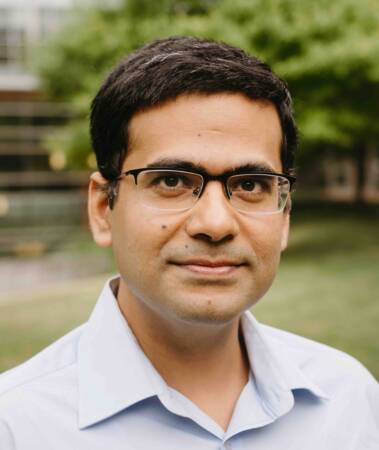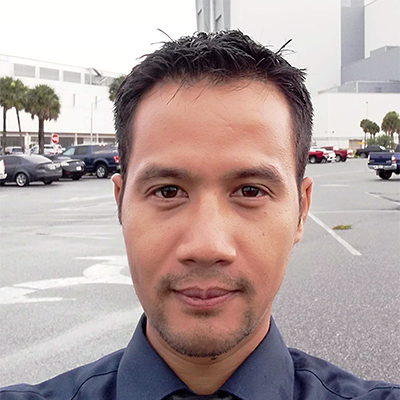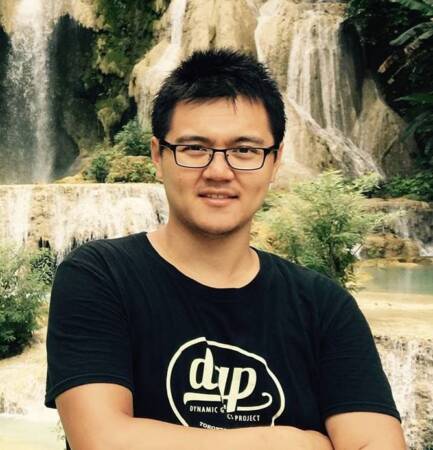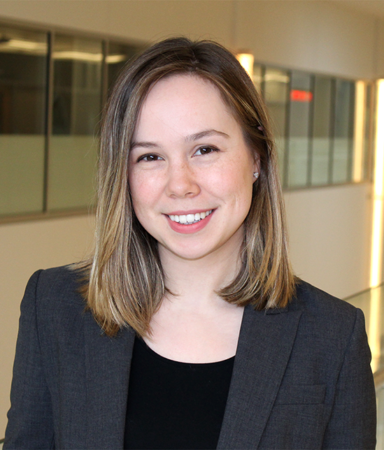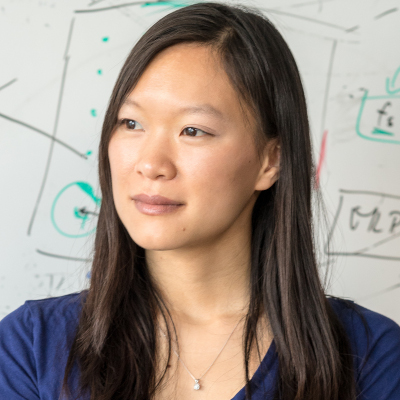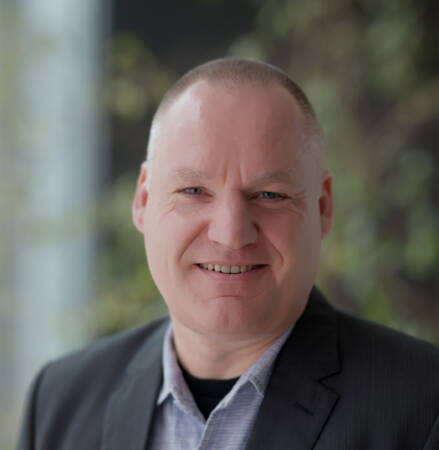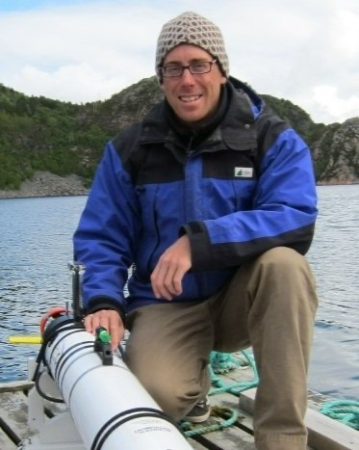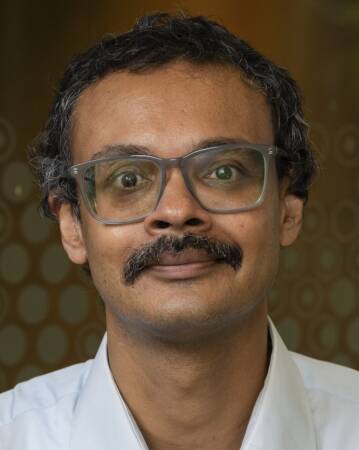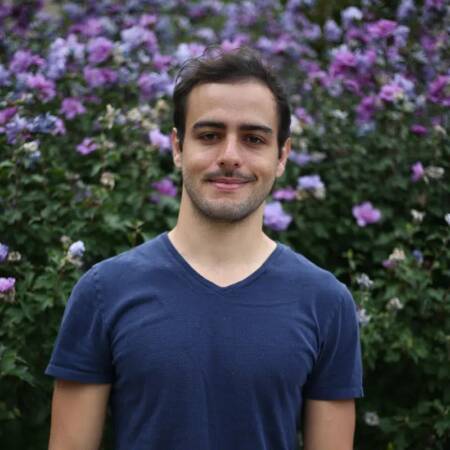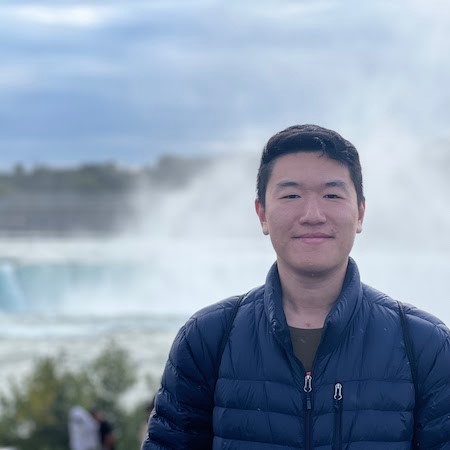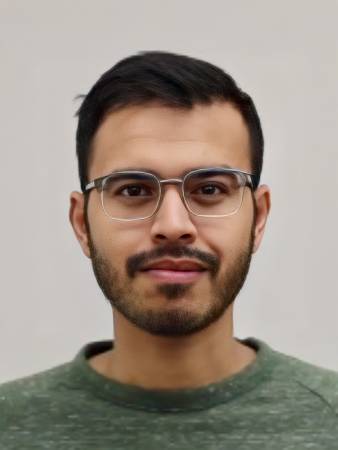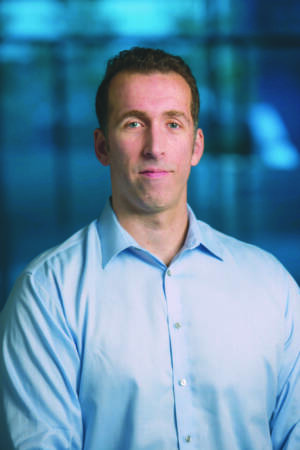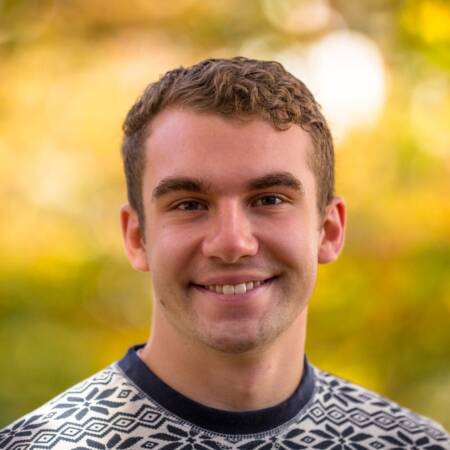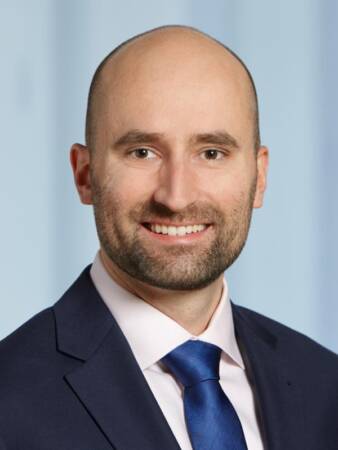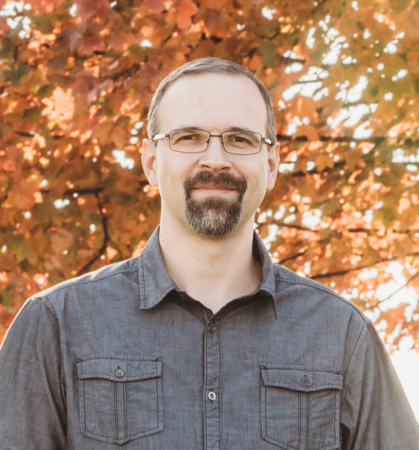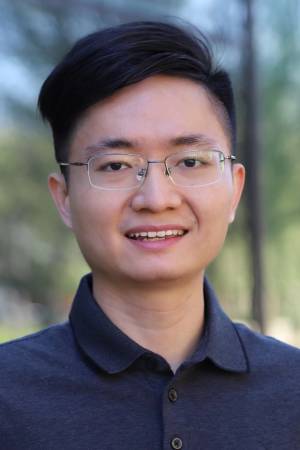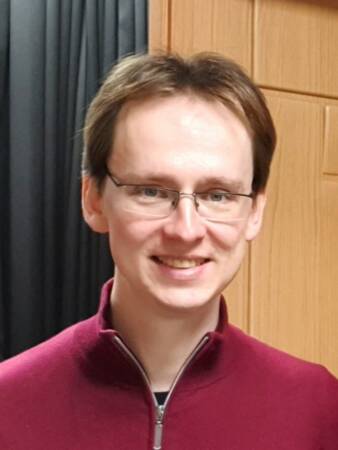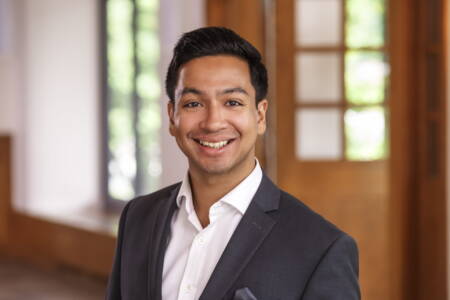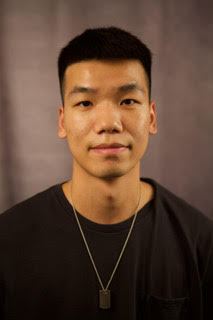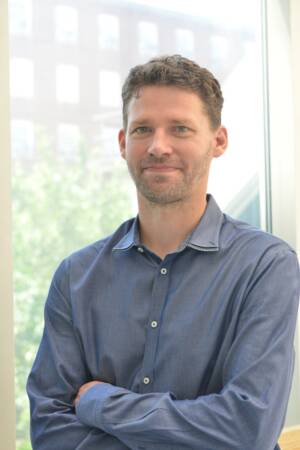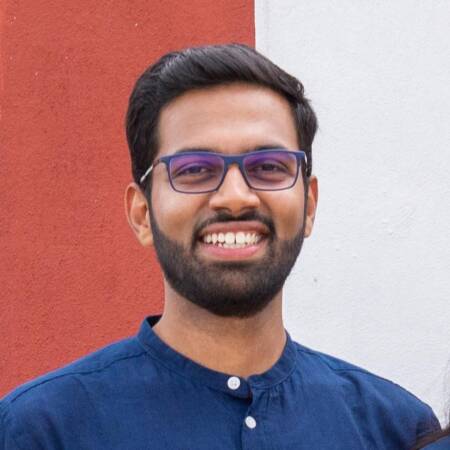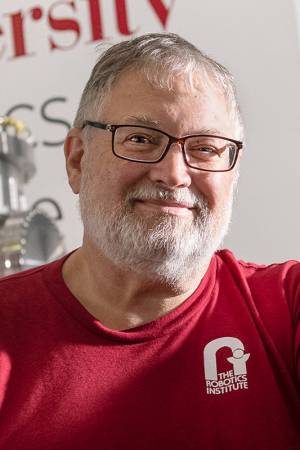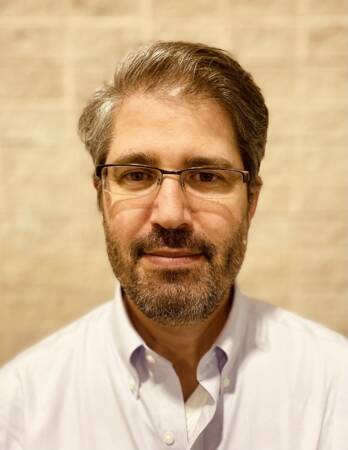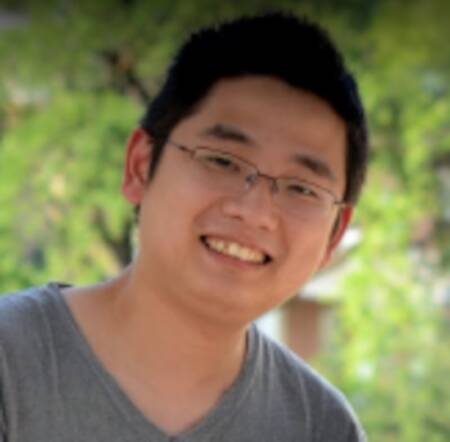Seminar
Where’s RobotGPT?
Abstract: The last years have seen astonishing progress in the capabilities of generative AI techniques, particularly in the areas of language and visual understanding and generation. Key to the success of these models are the use of image and text data sets of unprecedented scale along with models that are able to digest such large [...]
Neural Field Representations of Mobile Computational Photography
Abstract: Burst imaging pipelines allow cellphones to compensate for less-than-ideal optical and sensor hardware by computationally merging multiple lower-quality images into a single high-quality output. The main challenge for these pipelines is compensating for pixel motion, estimating how to align and merge measurements across time while the user's natural hand tremor involuntarily shakes the camera. In [...]
Robot Learning by Understanding Egocentric Videos
Abstract: True gains of machine learning in AI sub-fields such as computer vision and natural language processing have come about from the use of large-scale diverse datasets for learning. In this talk, I will discuss how we can leverage large-scale diverse data in the form of egocentric videos (first-person videos of humans conducting different tasks) [...]
Special Seminar
Speaker: Abhisesh Silwal Title: Robotics and AI for Sustainable Agriculture Abstract: Production agriculture plays a critical role in our lives, providing food security and enabling sustainability. Despite its immense importance, it currently faces many challenges including shortage of farmworkers, increasing production costs, excess use of herbicides just to name a few. Robotics and artificial intelligence-based [...]
Passive Ultra-Wideband Single-Photon Imaging
Abstract: High-speed light sources, fast cameras, and depth sensors have made it possible to image dynamic phenomena occurring in ever smaller time intervals with the help of actively-controlled light sources and synchronization. Unfortunately, while these techniques do capture ultrafast events, they cannot simultaneously capture slower ones too. I will discuss our recent work on passive ultra-wideband [...]
Simulation-Driven Soft Robotics
Abstract: Soft-bodied robots present a compelling solution for navigating tight spaces and interacting with unknown obstacles, with potential applications in inspection, medicine, and AR/VR. Yet, even after a decade, soft robots remain largely in the prototype phase without scaling to the tasks where they show the most promise. These systems are difficult to design and [...]
From Understanding to Interacting with the 3D World
Abstract: Understanding the 3D structure of real-world environments is a fundamental challenge in machine perception, critical for applications spanning robotic navigation, content creation, and mixed reality scenarios. In recent years, machine learning has undergone rapid advancements; however, in the 3D domain, such data-driven learning is often very challenging under limited 3D/4D data availability. In this talk, [...]
Learned Imaging Systems
Abstract: Computational imaging systems are based on the joint design of optics and associated image reconstruction algorithms. Of particular interest in recent years has been the development of end-to-end learned “Deep Optics” systems that use differentiable optical simulation in combination with backpropagation to simultaneously learn optical design and deep network post-processing for applications such as hyperspectral [...]
ARPA-H and America’s Health: Pursuing High-Risk/High-Reward Research to Improve Health Outcomes for All
Dr. Andy Kilianski will provide an overview of ARPA-H, a new U.S. government funding agency pursuing R&D for health challenges. He will review the unique niche occupied by ARPA-H within the Department of Health and Human Services and how ARPA-H is already partnering with academia and industry to transform health outcomes across the country. Discussion [...]
Robots Crossing Boundaries
Abstract: Over the last 50 years, autonomous robots have made the leap from being novel research contributions in university labs to becoming the fundamental technology upon which companies are built. While they traditionally have belonged to the engineering and computer science disciplines, robots have now crossed into other areas of study and research - making impacts in oceanography, geology, archaeology, biomechanics and biology. [...]
Sampling and Signal-Processing for High-Dimensional Visual Appearance in Computer Graphics and Vision
Abstract: Many problems in computer graphics and vision, such as acquiring images of a scene to enable synthesis of novel views from many directions for virtual reality, computing realistic images by integrating lighting from many different incident directions across a range of scene pixels and viewing angles, or acquiring and modeling the appearance of realistic materials [...]
Unlocking Magic: Personalization of Diffusion Models for Novel Applications
Abstract: Since the recent advent of text-to-image diffusion models for high-quality realistic image generation, a plethora of creative applications have suddenly become within reach. I will present my work at Google where I have attempted to unlock magical applications by proposing simple techniques that act on these large text-to-image diffusion models. Particularly, a large class of [...]
Instant Visual 3D Worlds Through Split-Lohmann Displays
Abstract: Split-Lohmann displays provide a novel approach to creating instant visual 3D worlds that support realistic eye accommodation. Unlike commercially available VR headsets that show content at a fixed depth, the proposed display can optically place each pixel region to a different depth, instantly creating eye-tracking-free 3D worlds without using time-multiplexing. This enables real-time streaming [...]
Remote Rendering and 3D Streaming for Resource-Constrained XR Devices
Abstract: An overview of the motivation and challenges for remote rendering and real-time 3D video streaming on XR headsets. Bio: Edward is a third year PhD student in the ECE department interested in computer systems for VR/AR devices. Homepage: https://users.ece.cmu.edu/~elu2/ Sponsored in part by: Meta Reality Labs Pittsburgh
Vectorizing Raster Signals for Spatial Intelligence
Abstract: This seminar will focus on how vectorized representations can be generated from raster signals to enhance spatial intelligence. I will discuss the core methodology behind this transformation, with a focus on applications in AR/VR and robotics. The seminar will also briefly cover follow-up work that explores rigging and re-animating objects from casual single videos [...]
What Makes Learning to Control Easy or Hard?
Abstract: Designing autonomous systems that are simultaneously high-performing, adaptive, and provably safe remains an open problem. In this talk, we will argue that in order to meet this goal, new theoretical and algorithmic tools are needed that blend the stability, robustness, and safety guarantees of robust control with the flexibility, adaptability, and performance of machine [...]
Stochastic Graphics Primitives
Abstract: For decades computer graphics has successfully leveraged stochasticity to enable both expressive volumetric representations of participating media like clouds and efficient Monte Carlo rendering of large scale, complex scenes. In this talk, we’ll explore how these complementary forms of stochasticity (representational and algorithmic) may be applied more generally across computer graphics and vision. In [...]
Can Robots Based on Musculoskeletal Designs Better Interact With the World?
Abstract: Living robots represent a new frontier in engineering materials for robotic systems, incorporating biological living cells and synthetic materials into their design. These bio-hybrid robots are dynamic and intelligent, potentially harnessing living matter’s capabilities, such as growth, regeneration, morphing, biodegradation, and environmental adaptation. Such attributes position bio-hybrid devices as a transformative force in robotics [...]
Soft Wearable Haptic Devices for Ubiquitous Communication
Abstract: Haptic devices allow touch-based information transfer between humans and intelligent systems, enabling communication in a salient but private manner that frees other sensory channels. For such devices to become ubiquitous, their physical and computational aspects must be intuitive and unobtrusive. The amount of information that can be transmitted through touch is limited in large [...]
Reconstructing Everything
Abstract: The presentation will be about a long-running, perhaps quixotic effort to reconstruct all of the world's structures in 3D from Internet photos, why this is challenging, and why this effort might be useful in the era of generative AI. Bio: Noah Snavely is a Professor in the Computer Science Department at Cornell University [...]
Using Robotics, Imaging and AI to Tackle Apple Fruit Production: Crop Harvest and Fire Blight Disease, The Two Major Bottlenecks for U.S. Apple Producers
Abstract Temperate tree fruit production is a significant agricultural sector in the United States, encompassing a variety of fruits like apples, pears, cherries, peaches and plums. The U.S. is the second-largest producer of apples in the world, after China. Annual U.S. production is 10 - 11 billion pounds of apple. However, apple production is complicated [...]
Building Generalist Robots with Agility via Learning and Control: Humanoids and Beyond
Abstract: Recent breathtaking advances in AI and robotics have brought us closer to building general-purpose robots in the real world, e.g., humanoids capable of performing a wide range of human tasks in complex environments. Two key challenges in realizing such general-purpose robots are: (1) achieving "breadth" in task/environment diversity, i.e., the generalist aspect, and (2) [...]
High-Fidelity Neural Radiance Fields
Abstract: I will present three recent projects that focus on high-fidelity neural radiance fields for walkable VR spaces: VR-NeRF (SIGGRAPH Asia 2023) is an end-to-end system for the high-fidelity capture, model reconstruction, and real-time rendering of walkable spaces in virtual reality using neural radiance fields. To this end, we designed and built a custom multi-camera rig to [...]
Building Scalable Visual Intelligence: From Represention to Understanding and Generation
Abstract: In this talk, we will dive into our recent work on vision-centric generative AI, focusing on how it helps with understanding and creating visual content like images and videos. We'll cover the latest advances, including multimodal large language models for visual understanding and diffusion transformers for visual generation. We'll explore how these two areas [...]
Robots That Know When They Don’t Know
Abstract: Foundation models from machine learning have enabled rapid advances in perception, planning, and natural language understanding for robots. However, current systems lack any rigorous assurances when required to generalize to novel scenarios. For example, perception systems can fail to identify or localize unfamiliar objects, and large language model (LLM)-based planners can hallucinate outputs that [...]
Sparse-view Pose Estimation and Reconstruction via Analysis by Generative Synthesis
Abstract: This talk will present our approach for reconstructing objects from sparse-view images captured in unconstrained environments. In the absence of ground-truth camera poses, we will demonstrate how to utilize estimates from off-the-shelf systems and address two key challenges: refining noisy camera poses in sparse views and effectively handling outlier poses. Bio: Qitao is a second-year [...]
EgoTouch: On-Body Touch Input Using AR/VR Headset Cameras
Abstract: In augmented and virtual reality (AR/VR) experiences, a user’s arms and hands can provide a convenient and tactile surface for touch input. Prior work has shown on-body input to have significant speed, accuracy, and ergonomic benefits over in-air interfaces, which are common today. In this work, we demonstrate high accuracy, bare hands (i.e., no special [...]
Auptimize: Optimal Placement of Spatial Audio Cues for Extended Reality
Abstract: Spatial audio in Extended Reality (XR) provides users with better awareness of where virtual elements are placed, and efficiently guides them to events such as notifications, system alerts from different windows, or approaching avatars. Humans, however, are inaccurate in localizing sound cues, especially with multiple sources due to limitations in human auditory perception such as [...]
Abstraction Barriers for Embodied Algorithms
Abstract: Designing robotic systems to reliably modify their environment typically requires expert engineers and several design iterations. This talk will cover abstraction barriers that can be used to make the process of building such systems easier and the results more predictable. By focusing on approximate mathematical representations that model the process dynamics, these representations can [...]
Autonomous Robotic Surgery: Science Fiction or Reality?
Abstract: Robotic assisted surgery (RAS) systems incorporate highly dexterous tools, hand tremor filtering, and motion scaling to enable a minimally invasive surgical approach, reducing collateral damage and patient recovery times. However, current state-of-the-art telerobotic surgery requires a surgeon operating every motion of the robot, resulting in long procedure times and inconsistent results. The advantages of [...]
Generative Modelling for 3D Multimodal Understanding of Human Physical Interactions
Abstract: Generative modelling has been extremely successful in synthesizing text, images, and videos. Can the same machinery also help us better understand how to physically interact with the multimodal 3D world? In this talk, I will introduce some of my group's work in answering this question. I will first discuss how we can enable 2D [...]
A retrospective, 40 Years of Field Robotics
Abstract: Chuck has been building and deploying robots in the field for the past 40 years. In this retrospective he will touch on the robots, people and experiences that have been part of the journey. From the early days in the 1980s with the Three Mile Island nuclear robots and the first outdoor autonomy robots [...]
Learning for Dynamic Robot Manipulation of Deformable and Transparent Objects
Abstract: Dynamics, softness, deformability, and difficult-to-detect objects will be critical for new domains in robotic manipulation. But there are complications--including unmodelled dynamic effects, infinite-dimensional state spaces of deformable objects, and missing features from perception. This talk explores learning methods based on multi-view sensing, acoustics, physics-based regularizations, and Koopman operators and proposes a novel multi-finger soft [...]
High-resolution cloth simulation in milliseconds: Efficient GPU Cloth Simulation with Non-distance Barriers and Subspace Reuse Interactions
Abstract: We show how to push the performance of high-resolution cloth simulation, making the simulation interactive (in milliseconds) for models with one million degrees of freedom (DOFs) while keeping every triangle untangled. The guarantee of being penetration-free is inspired by the interior-point method, which converts the inequality constraints to barrier potentials. Nevertheless, we propose a [...]
